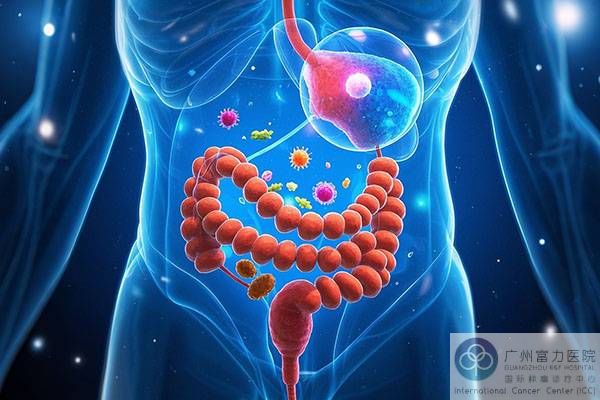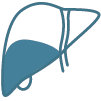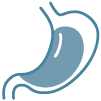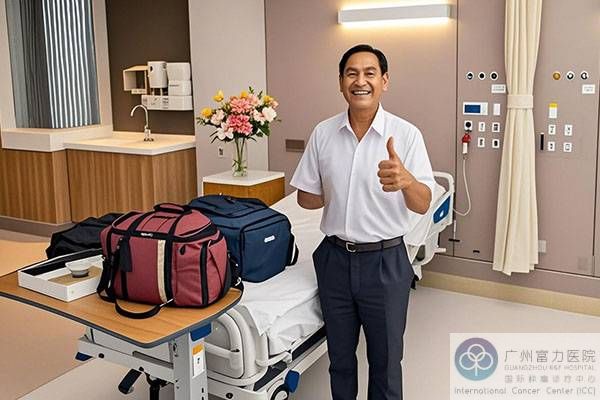Intestinal flora transplantation technology - reshape the anti-cancer immune defense line with the "power of flora".
For cancer patients, chemotherapy resistance, ineffective immunotherapy or serious side effects often become treatment bottlenecks. The innovative intestinal flora transplantation technology (FMT) of Guangzhou R&F Hospital Cancer Center activates systemic immunity by "reshaping the intestinal microecology", providing breakthrough adjuvant treatment solutions for international colorectal cancer, liver cancer and other patients (especially in Southeast Asia and the Middle East), making anti-cancer treatment more effective. This cutting-edge therapy that enhances the anti-cancer effect by reshaping the intestinal microbial ecology has helped improve the treatment effect of Indonesian familial colorectal cancer and Saudi fatty liver-related liver cancer patients. Clinical data in 2024 showed that the efficacy of combined immunotherapy increased to 58% (only 32% for single-drug treatment), and the incidence of chemotherapy side effects decreased by 67%.
What is intestinal flora transplantation technology? - Invisible intestinal ally
The intestine is the largest immune organ in the human body, and 70% of immune cells are active here. The intestinal flora of healthy people can secrete metabolites (such as short-chain fatty acids), directly activate immune cells (such as T cells, NK cells), and enhance their recognition and killing ability of cancer cells. Non-invasive and painless, 3 transplants constitute a course of treatment (1 week apart), and daily anti-cancer treatment can be synchronized
Intestinal flora transplantation technology assists anti-cancer through the following steps:
Bacteria screening: Extract functional flora from the feces of healthy donors (strictly screened for no history of disease), about 3000+ beneficial bacteria (need to pass 200 medical tests)
Bacteria liquid preparation: Laboratory separation, purification, and amplification of beneficial flora (such as Bifidobacterium, Akkermansia);
Transplantation treatment: Transplant functional flora into the patient's intestine through colonoscopy, oral capsules or nasointestinal tubes to rebuild an "anti-cancer friendly" microecology.
Triple anti-cancer:
○ Metabolic regulation: produce butyrate and other substances to starve cancer cells
○ Immune activation: stimulate PD-1 inhibitor response rate to increase by 3 times
○ Toxin removal: decompose chemotherapy drug residues to protect liver and kidney function

Which patients are suitable for this technology?
Intestinal flora transplantation can be used as a "synergist" for cancer treatment, also known as intestinal gardener, especially suitable for:
Immunotherapy resistance: "cold tumor" patients (such as lung cancer and gastric cancer) who are ineffective with PD-1/PD-L1 inhibitors;
Chemotherapy side effect management: relieve diarrhea, mucositis, bone marrow suppression and other complications after chemotherapy;
Intestinal damage after radiotherapy: repair intestinal flora imbalance caused by radiation enteritis;
Cancer prevention: correct flora disorders in people at high risk of colorectal cancer (such as familial polyposis).
Compared with traditional treatment, it has significant advantages
Treatment Method | Mechanism of Action | Duration of Treatment | Side Effects | Core Advantages |
Chemotherapy | Kill cancer cells indiscriminately | Multiple cycles (several months) | Hair loss, decreased immunity | Widely applicable but destroys flora |
Immunotherapy | Activates T cells to fight cancer | Long-term medication | Immune enteritis, pneumonia | Only effective for some patients |
Intestinal Flora Transplantation | Regulates flora-immune axis | 1-3 treatments (1 month interval) | Short-term abdominal distension, bowel sounds | Increases immunotherapy response rate by 2-3 times and reduces chemotherapy toxicity |
Compared with other traditional adjuvant treatments: Strength enhancement
Dimensions | Probiotic Supplements | Nutritional Support Therapy | Bacteria Transplantation Therapy |
Bacterial Diversity | 5-10 species | None | 1,500+ species of complex flora |
Speed of Onset | 4-8 weeks | 2-4 weeks | 72 hours of colonization |
Depth of Action | Intestinal surface | Systemic metabolism | Reconstruction of intestinal mucosal immune layer |
Core Advantages | Relieve diarrhea | Maintain basic nutrition | Reverse immunotherapy resistance |
Why choose Guangzhou R&F Hospital for intestinal flora transplantation?
International-level microbiome library: Unlike some hospitals in Southeast Asia and the Middle East that use a single donor, our hospital has cooperated with the Global Microbiome Project (IGMP) to reserve more than 1,000 genome-verified "anti-cancer advantage microbiota";
Precise microbiome matching: Customized "one-to-one" microbiome transplantation program based on the patient's tumor type, genetic testing and metabolome analysis;
Multidisciplinary collaboration: Oncology, Microecology, and Nutrition jointly formulate treatment-diet-follow-up plans, and immune cell activity increases by 40%-60% after microbiome transplantation;
Safe and non-invasive: Oral administration of freeze-dried microbiome capsules avoids invasive colonoscopy operations, and multinational patients can complete donor screening and microbial liquid delivery remotely.
Guangzhou R&F Hospital International Cancer Center Real patient case: Anti-cancer breakthrough of microbiota remodeling
Patient background:
Name: Rina (Indonesia, 52 years old, Lynch syndrome colorectal cancer)
Condition: Severe diarrhea after chemotherapy (10 times a day on average), weight loss of 15kg
Special needs: Need to continue family business, unable to stay in hospital for a long time
Treatment plan:
3 microbiota transplants
Combined PD-1 inhibitor treatment
Traditional herbal diet conditioning
Treatment results:
Diarrhea dropped to 2 times a day after the second transplant
Colonoscopy showed 60% reduction in tumor after 6 months
Coconut oil processing plant maintained during treatment

"These invisible little lives understand my body better than any medicine." - Rina
Other patient cases
Case 1: Lung cancer immunotherapy resistance (Saudi Arabia, 50 years old)
PD-1 treatment was ineffective for 6 months, and the tumor progressed. After FMT combined with immunotherapy, the tumor shrank by 50% after 2 months, the abundance of Akkermansia in the intestine increased by 8 times, and no immune enteritis occurred.
Case 2: Complications of chemotherapy for colorectal cancer (Indonesia, 65 years old)
Severe diarrhea (> 10 times a day) after chemotherapy forced to interrupt treatment. Diarrhea was relieved 7 days after FMT transplantation, intestinal bifidobacteria returned to healthy levels, and the chemotherapy cycle was successfully completed.
Case 3: Melanoma liver metastasis (Malaysia, 38 years old)
Increased liver metastases after targeted drug resistance. FMT combined with PD-1 treatment, liver metastases necrotized 3 months later, peripheral blood T cell activity increased 3 times, and progression-free survival was achieved for 18 months.
For more patient stories, please click
Let trillions of microorganisms become your anti-cancer allies - we redefine cancer adjuvant therapy.
Guangzhou R&F Hospital Cancer Center has opened the era of "survival without chemotherapy" for cancer patients and won a lasting victory for life. If you or your family are facing difficulties in cancer treatment, please contact Guangzhou R&F Hospital Cancer Center. We provide multilingual medical history consultation, contact us now to get an assessment of treatment eligibility.
Contact us:
email: rfcancercenter@gmail.com |
whatsapp: +86 18022448567











































